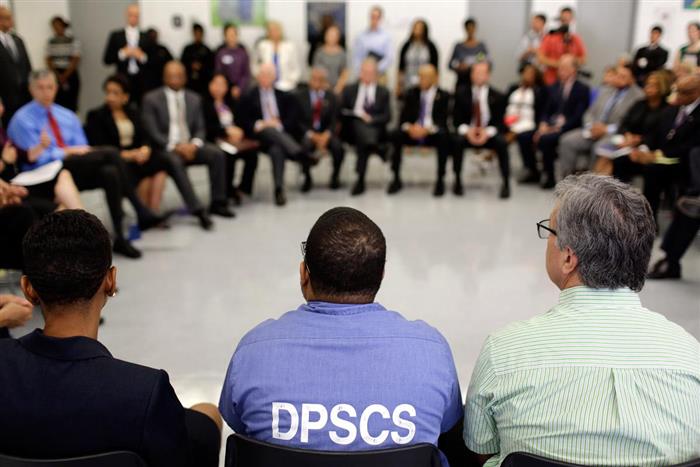
Log In


Photo credit AP Photo/Patrick Semansky
According to President Obama, the Pell Grant Program should be extended to include convicted felons currently in our prison systems so that they may continue their education from behind bars. The US is a "nation of second chances," according to Arne Duncan, the current Secretary of Education, and should offer the incarcerated the option of an at least partially funded post-secondary education. Additionally, the Obama Administration hopes to extend the program through the summer so that students can graduate more quickly, while also providing incentive for students who take a minimum of 15 credits per semester/trimester.
Currently, those incarcerated at a federal or state penal institution are not permitted to receive a Pell grant - Obama's "Second Chance Pell Pilot Program for Incarcerated Individuals" would change that. Additionally, the Department of Education announced two more proposals to the current Pell Grant program which would increase the $29 billion program by $2 billion in the upcoming fiscal year. The proposal will be part of President Obama's budget proposal next month. The "Pell for Accelerated Completion" program allows students with financial need to take summer courses using Pell grant money, unlike the current program, which only covers two academic semesters.
The second proposal, the "On Track Pell Bonus," rewards students who take minimum of 15 credits per semester with $300. Roughly 2.3 million students would benefit from the bonus program. The goal of these two proposals is two-fold: to help students graduate earlier and to provide them with more financial assistance through the Pell Grant. Almost 8.3 million students were awarded the Pell Grant in the 2015 fiscal year, with approximately $28.7 billion in financial aid. According to the Department of Education's budget report, the maximum Pell grant for 2015-2016 was $5,775 but will be reduced to $4,860 next year.
According to the Department of Education, these changes would benefit almost 700,000 students with an additional $1,900 per student (currently, the average amount received by qualifying students is $3,600). Research also shows that 1.5 million high school graduates did not complete a FAFSA in 2014, despite their eligibility, resulting in just under $3B in unclaimed funds. Since today marks National Student Debt day, a group of young activists named the Young Invisibles will convene at the University of the District of Colombia Community College to learn more about the current student debt crisis and find out how they can influence higher education policy. Members of Congress will be present, including keynote speaker, Senator Elizabeth Warren.
Do you think Pell grants should be offered to incarcerated individuals? Would you take more summer courses if the Pell were to be extended? Start a discussion below.
Credit attributed to Jennifer C. Kerr, Associated Press reporter covering education from Washington, D.C.